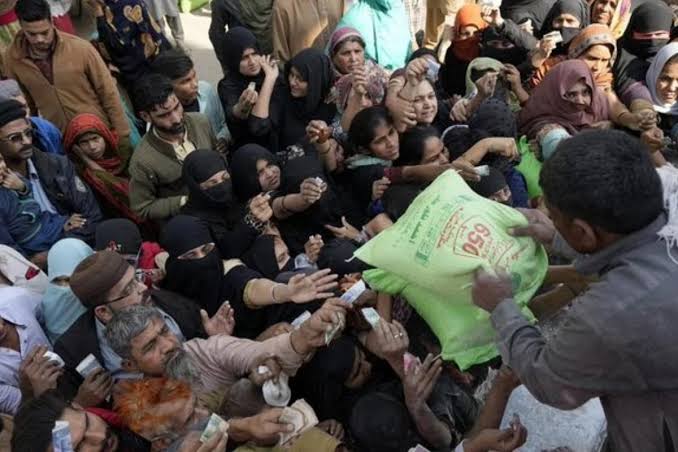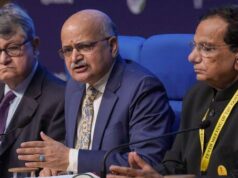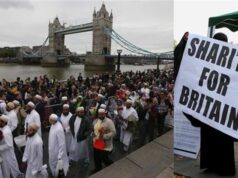Pakistan facing deep Economic Crisis

Pakistan had hiked the prices of petrol to Pakistani Rupees Rs 272 per litre as per IMF dictate for receiving the critical loan tranche. Pakistan’s current situation is the most difficult faced by the country in the last two decades.
Kristalina Georgieva, Managing Director of the International Monetary Fund (IMF) recently asked Pakistan “to take steps to be able to function as a country” and not get into a dangerous place where it needs debt restructuring.
The News International where the IMF chief said, “We are emphasising two things, number one, raising tax revenues, as those who are making good money in public or private sectors, need to contribute to the economy, and, number two, a fairer distribution of precious resources by taking subsidies away from people who don’t need them. It shouldn’t be that the wealthy benefit from subsidies. It should be the poor [who] benefit from them.”
She further added, “We (IMF) want the poor people of Pakistan to be protected.”
Consequently, Prime Minister Shahbaz Sharif announced on 26 February, a broad range of measures aiming to tighten the government’s belt but warned people to brace for more price hikes due to the tough conditions imposed by the IMF.
Prime Minister Sharif also unveiled the austerity measures approved by the federal cabinet and expressed the hope that the government would be able to take the masses out of the current economic conditions, the Greek City Times reported.
The main highlight of the government’s austerity measures was the withdrawal of salaries and perks of the Prime Minister, minister’s special assistants and advisers, along with a 15 percent cut in the expenses of all government departments. Essentially, the point that PM Sharif made while talking to the media was that the rich in Pakistan needed to make sacrifices for the country.
Someone needs to ask the PM as to why the Pakistan Army, which has made “good money” over the years, is not being asked to sacrifice its funds for the betterment of Pakistan. All the lands that army officers own, the factories and industries that they operate, and funds parked in Swiss bank accounts could well be used to improve Pakistan’s economic conditions.
More than 20 per cent of Pakistan’s annual budget goes to the Army.
The current situation sees Pakistan facing multiple challenges in the form of a deep economic crisis, political turmoil, and intensified terror attacks in the northwestern areas. All this has drained Pakistan of its resources.
Further, the country’s economic deterioration has a direct impact on the people of Pakistan.
Official sources told The News International that the IMF could help Pakistan overcome its looming Balance of Payments (BoP) crisis only by ensuring that the country remains able to pay its debt obligations without plunging into default. Revival of the IMF program is a pre-requisite for seeking any debt restructuring, so the government is focusing on it currently.
It is only after this that debt restructuring, especially from non-Paris Club countries, might be considered. Pakistan will require external debt servicing both in the shape of principal and mark-up amounts to the tune of US$27 billion in the next financial year.
The ongoing IMF program of US$6.5 billion under the Extended Fund Facility (EFF) will expire on 30 June 2023 and there is no possibility of any further extension in the ongoing EFF arrangement.
At that stage, Pakistan will have to seek a fresh IMF loan keeping in view the massive external debt servicing requirements and the possibility of lower foreign exchange reserves.
Pakistan’s historic high in petrol price and the IMF’s delay in sending aid are pushing Pakistan’s economy into a ‘tailspin’.
However, the IMF’s recent review mission has made it clear that the government will have to undertake tax revenues from all those who possess income.
There are only around 3.5 million return filers out of over 200 million population, so there is a need for broadening the narrow tax base. Under the IMF’s prescriptions, the government unveiled the mini budget, slapping additional taxes of Pak Rs.170 billion and it was expected that it would soon be passed by the National Assembly.




